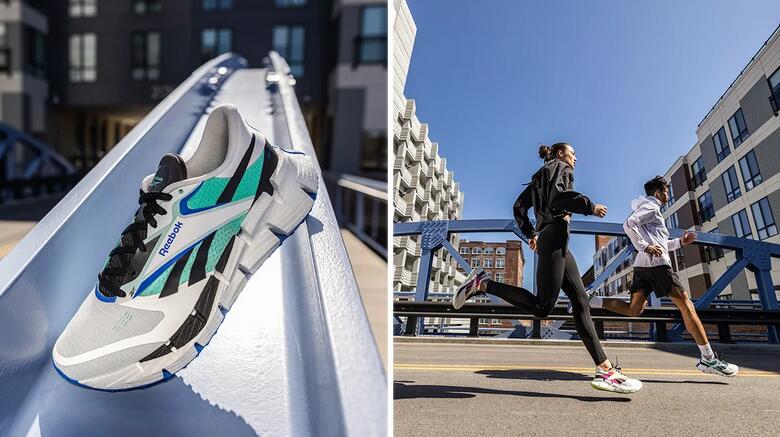Inside Reebok’s Strategy to Become a Major Player in Performance Running Shoes
The performance running shoe category is hot, and Reebok is the latest brand looking to capture a piece of the market.
“Running is a massive category, and we have heritage in this space, so we’re not an outsider. We’ve maybe been inconsistent, but we’ve always had a position in running and have had great products,” Reebok president and chief executive officer Todd Krinksy told FN. “The consumer is certainly open to more players than they were four or five years ago when they kept their choices between Adidas, Brooks and Nike. They’re open to challenger brands more than ever before, and [willing] to trying new things.”

The next phase in Reebok’s journey in performance run will begin on April 4 with the release of the FloatZig 1. Reebok built the road running shoe with its responsive Floatride Energy Foam, as well as its acclaimed Zig Tech technology, identifiable by a geometric design that’s familiar to most sneaker consumers. This pairing, Reebok explained, cuts down on excess weight and stiffness to allow for optimal energy return for the everyday runner.
The FloatZig 1 also includes engineered mesh uppers with reflective overlays, reinforced midfoot panels for extra support and targeted foam panels at the tongue and collar, added to offer comfort and a secure fit. It is built with a 6 mm drop and a unisex size 9 weighs 9.8 oz.
The shoe will debut in several unisex and women’s launch colorways via Reebok.com, Amazon and with select retailers globally.
“We want this to be something that not just avid, serious runners wear. We also want this be something [for] the everyday runner. This is a more democratized play, and the distribution strategy mirrors the product,” Krinsky explained. “We have it being sold into running specialty accounts to ground us with the running community, and we are going to have it in a Champs [Sports], for example, as well as bigger box sporting goods and our own channels.”

What’s also notable is the price point. Retailing for $130, the shoe comes in at more accessible price than several everyday running shoes from Reebok’s competitors.
“We obviously want to make money and great margins, but we also want to give the consumer value. One of the strategic reasons we priced it at $130 is because it’s such a competitive market. A lot of the products that we tested against were $150-$160,” Krinsky said. “We’ve seen the independent testing, we understand where it rates against the competitors, so we feel we have something that absolutely works and has a distinct look — but it takes more than performance and visual to get a consumer to take it off the wall. Adding the competitive price point and giving more value will allow more consumers to try it.”
Reebok also revealed its “Running Hacks” global marketing campaign, created to showcase its newest running shoe. The effort includes creative “hack” vignettes, Reebok explained, which were made to “make running more fun and more productive,” and to encourage movement “in a comical and lighthearted tone.” It features NFL quarterback Justin Fields, women’s college basketball champion Angel Reese and running influencer Erin Azar, whose @ImMrsSpaceCadet account on Instagram has 381,000 followers.
Looking ahead, Reebok has plans to expand its FloatZig range of products. Aside from the FloatZig 1, Reebok will also release the FloatZig Symmetros on April 1, an extra stable shoe built for a supportive ride on longer miles. It will retail for $150. And in the fall, Reebok confirmed it will release the FloatZig X1, which is a model built with a carbon-fiber plate, as well as a trail running shoe, the FloatZig Adventure.
“You need great innovation, but you also don’t need 10 things in innovation. You need one to work well, and you need to be disciplined enough to stay with it,” Krinsky said. “What we’re trying to do is deliver a great, innovative product that we know performs well, that has a unique look, that has disruptive communication around it and then offer it at a great price point.”
He continued, “As we move forward, our goal isn’t to add 10 new things. It’s to get this thing going. The future is how we extend the franchise. We’ll do a carbon plate version, a trail version and other franchise extensions — collaborations, materials, colors — for the next 18 months before we add another innovation. Over the years, we’ve gotten off of things too fast and if the brand doesn’t believe in it, the consumer is not going to believe in it.”
